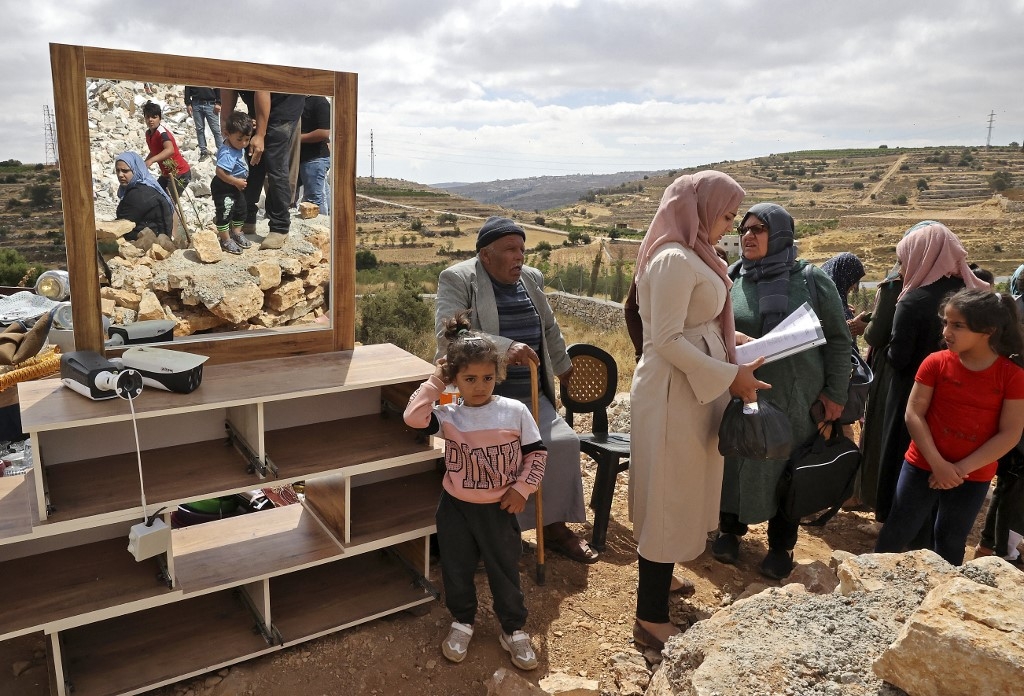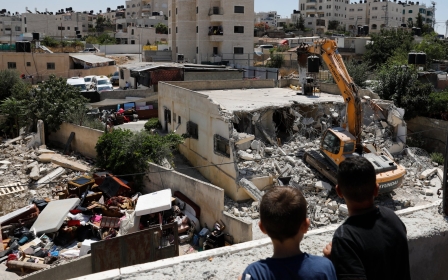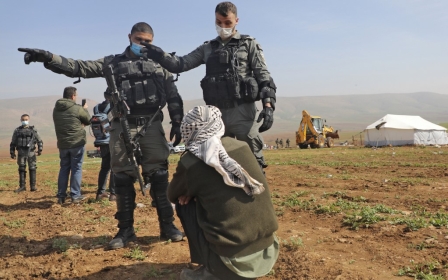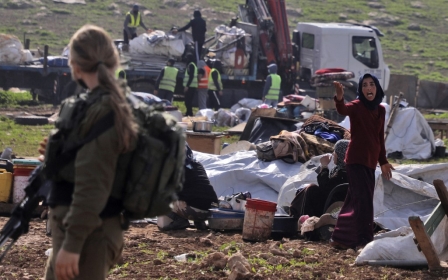Palestinian children feel 'abandoned by the world' after Israel demolished their homes

Four out of five Palestinian children whose homes were demolished by Israel in the West Bank and East Jerusalem said they "felt abandoned" by the world, a new report has revealed.
The findings, published by Save the Children, come as Palestinian residents of the East Jerusalem neighbourhoods of Sheikh Jarrah and Silwan are at risk of imminent eviction from their homes, pending decisions by the Israeli Supreme Court.
Save the Children spoke to 217 Palestinian families whose homes were demolished by Israel over the last ten years.
The charity found that 80 percent of children surveyed felt their parents would not be able to protect them and said they felt "powerlessness and hopelessness about the future".
The majority of the children surveyed by the charity also displayed high rates of distress, including feelings of sadness, fear, depression and anxiety.
"I still feel traumatised by the soldiers and their dogs attacking and injuring my father [during the demolition]," Ghassan, 15, told Save the Children.
"I have nightmares about the bulldozers ripping away every stone in our house, and the sounds of the explosions still haunt me."
These findings come as Palestinian communities in the Occupied East Jerusalem neighbourhood of Sheikh Jarrah and Beita fight possible expulsion from lands they have lived and worked in for generations.
Sharp increase in demolitions
In March, a UN agency warned that Israel was increasing home demolitions of Palestinians living in the West Bank.
The UN Office for the Coordination of Humanitarian Affairs in the Palestinian Territories (OCHA) said in a report released on Tuesday that Israel's actions resulted in the displacement of 305 Palestinians, including 172 children. At least 435 people also had their livelihoods or access to services affected.
The agency also noted that so far in 2021, the monthly average of Palestinian structures targeted represents a 65 percent increase compared with the monthly average in 2020.
Since 1967, Israeli authorities have demolished 28,000 Palestinian homes across the West Bank and East Jerusalem, according to the Israeli Committee against House Demolitions.
Save the Children believes the demolitions have uprooted at least 6,000 Palestinian children over the last 12 years. Jason Lee, Save the Children's country director in the occupied Palestinian territories, described the findings as "shocking" and a "warning" to the international community.
“These demolitions are not only illegal under international law, but they are also an obstacle for children to fulfil their right to a safe home and to be able to safely go to school. As the occupying power, Israel must protect the rights of those living under occupation, especially children," Lee said in a statement.
“Unless the international community makes it clear that it will hold the Government of Israel accountable for such violations, homes and schools will continue to be torn down, and children will pay the highest price."
He added: “We need children to be able to feel hope again. Without hope, there is no future for children to live in peace. The ceasefire after last month’s escalation of the violence in Gaza and southern Israel is just the first step. The international community cannot forget its obligation to uphold the rights of Palestinian children."
Israel defends home demolitions by saying that the buildings were constructed illegally and without required permits and approvals. But Palestinians and rights groups, including the UN, have documented that such permits are nearly impossible to obtain from the occupying state.
Nearly 90 percent of all structures that were targeted in February were seized in Area C without prior warning, OCHA said. Around 60 percent of the occupied West Bank is considered Area C, where Israel retains full control, including over planning and construction.
Unlike demolitions, Israeli authorities are not required to offer prior notice when carrying out seizures of property, which prevents those affected from being able to object to orders in advance. The exemption has been characterised by the Israeli civil administration as "a strategic tool", the report said.
This article is available in French on Middle East Eye French edition.
Middle East Eye propose une couverture et une analyse indépendantes et incomparables du Moyen-Orient, de l’Afrique du Nord et d’autres régions du monde. Pour en savoir plus sur la reprise de ce contenu et les frais qui s’appliquent, veuillez remplir ce formulaire [en anglais]. Pour en savoir plus sur MEE, cliquez ici [en anglais].





